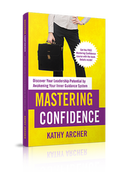|
Summer is kicking off; for many of us, this means extra reading time. If your reading list and maybe it's lacking in the leadership department. Here are a few suggestions I have for you to add to your summer reading list:
Summer Reading Book Suggestions 📚 Digital Body Language by Erica Dhawan Some of us are still virtual, some hybrid. However, even if you're in the office full time, my guess is many of the meetings you have are virtual. On top of that, much of our communication is often via email, messenger or text. This book helps you understand the body language of digital communication. It's fascinating and beneficial. p.s. the PDF file that comes with the audio version is phenomenal! Find the book here 📚 Atlas of the Heart by Brene Brown This book is not a book to read from front to back. Instead, it's a reference book you'll hopefully return to regularly. So take some time to skim through it and dig deeper into the parts that pull you in. This book helps you understand emotions and feelings and expands your emotional vocabulary. Developing your emotional vocabulary is extremely helpful if you want to increase your emotional intelligence and be a more composed and emotionally in control leader. Find the book here 📚 The Five Levels of Attachment by Don Miguel Ruiz Jr You'll recognize the author if you've read The Four Agreements by Don Miguel Ruiz. However, this book is by Don Miguel's son. He goes through how we attach to ideas, thoughts and beliefs. Recognizing how tightly you've grasped your view helps to loosen your grip so that you can see others' points of view, develop new awarenesses and grow yourself. Find the book here 📚 The Boy, the Mole, the Fox and the Horse by Charlie Mackesy Oh my goodness! No, this is not a leadership book. Today it is rated #1 in Literary Graphic Novels, #4 in Happiness, and #5 in Ethics & Morality But so many life lessons and reminders help put our lives into perspective. I listened to the audio version, which is less than an hour long and beautifully read by the author. I have replayed segments of it when I need those little reminders. Find the book here I thought about doing a book club on this book. So if you read it, let me know if you'd be interested in that. 📚 Think Again by Adam Grant Much of our thinking is unconscious. I'm often encouraging you to be more conscious with your thinking. In this book, you learn ways that thinking can help us and some of how it can get in the way. The ideas open your eyes to how you may want to engage in conversations with different people differently, explore other people's thoughts, get their input and work together. Find the book here 📚 Mastering Confidence by Kathy Archer Yes, I am also recommending my book. In in, I provide you with a framework for managing your thoughts. When your doubt, hesitation, and fear of imposter syndrome get in the way of leading, presenting, engaging in difficult conversations or running a staff meeting, it doesn't feel very good! This framework helps you rein in those thoughts and gives you structure you can return to when your thoughts begin to get the better of you again. Find the book here What books would you add to the list? Comment below so the rest of us can add to our reading list too! There are plenty of ways to brush up on your leadership skills this summer. Picking up one of these six books is a good start and see how a new perspective, idea or strategy can boost your confidence as a leader.
0 Comments
As you go about your day as a nonprofit leader, something may happen, and you may feel your body tighten. For example, your stomach knots up, your chest feels heavy, or your throat tightens or feels dry. Perhaps you overreact or shut down. This physical response may be a sign you may have just got triggered.
We often get triggered when something threatens our values. This response results when we feel something important to us is at risk. Here's how I got triggered this weekend... Let me give you an example. I value order. I like things to be in their place, and I like to have things tidy. However, this weekend I was triggered multiple times by mud on the floor and the result from when someone in my house who didn't think it was a problem not to clean their feet before they came in. (Can you guess who?) We're in the middle of backyard renovations. Unfortunately, with this weekend's rain, my backyard was a mud hole. Each time my husband, the dog, or I came in, a pile of mud and dirt came with us. Because a sense of order is important to me, I would take my shoes off outside, ensure the dog's feet were clean before he came in and immediately sweep up any chunks of mud. This is what triggered me... On the other hand, my husband sees the mess as part of the process, so the mess doesn't bother him. So it's not a problem for him to walk around barefoot outside and come into the house. He values freedom, ease and relaxation. He likes to be barefoot, and walking around in the grass and mud doesn't bother him. The house will get cleaned eventually, so what's the big deal? Which camp are you in?
This is how knowing my trigger helped me Knowing that I'm triggered by disarray helps me manage my emotions and be somewhat humourous about my incessant need to clean. Aware that the tightness in my chest is building, I can manage my frustration with my husband by managing my self-talk, taking some deep breaths or distracting myself with something I enjoy. Jenessa's story.. During a coaching call the other day, my client Jenessa became aware that when others aren't accountable for their actions or in-actions, or their responsibilities etc., she is triggered. Jenessa feels her chest tighten, purses her lips, and sometimes clenches her hands. She laughed at the memory of pounding out a response to a chat message when she was annoyed with someone shirking their responsibility. Does either of these feel familiar to you? Just as...
This is why identifying your triggers is important Identifying triggers is part of working with and understanding our values to help us be more emotionally intelligent and confident in our abilities. When you know what's important to you and what it feels like when that thing (i.e. order, accountability) is being threatened, it's easier to choose a response than react in a way you may regret later. Below you'll find steps to help you find the clarity around your value to help you be more intentional instead of reactionary. 5 steps to use your VALUES to be more emotionally intelligent Here is the process to help you find the clarity around your value to help you be more intentional instead of reactionary. 1 - Identify your values 2- Get an understanding of what your values mean to you
3 - Determine how your values show up in your life 4 - Pinpoint what's going on when you are aligned with your values or not 5- Get clear on what triggers show up when things in your life aren't in line with your values This deeper understanding of your values helps you to manage your emotions, navigate tough conversations and focus on what matters most when it matters most! One more example... If you are trying to wind down a conversation at a meeting, you may value timeliness or efficiency. Your annoyance with those who are dragging the conversation out is triggering that value. That's why you are:
Conversely, your peer may be
See how that all works together? Need some help? This month inside my membership, I added a worksheet to the Values Verification course, helping members identify their triggers. If this is part of what you need, or the five steps listed above, check out the course here and if you think it would be helpful, join the membership here. When you join The Training Library membership, you'll become confident in your leadership abilities, learn to bounce back when adversity hits, discover how to be your best self and find a place to belong! Becoming emotionally intelligent and confident in our leadership abilities takes time and requires skill development and increased awareness of what makes us tick! To do this, take responsibility for where you are and where you are going by creating your own personal and professional development plan. Intentional development is your path to success in both your leadership and life. Read this next: The 8 most overlooked definitions in leadership and why they matter I bet there are times you wish you could be involved in an engaging leadership experience? Not a one-off course, webinar or conference session, but an experience, over time, that deepens your learning!
In 2012 I did that. For 10 months, about 20 other leaders from around the world and I learned together, online and in person. Four times we met for a week at a time in California. Between those sessions, we met online and had partner projects that required us to meet in person with our partners. It was an incredible experience. It was also one of the most transformative things I've ever done. Not everyone can do something like that, but we can create learning experiences for our teams. Not training per se, but an experience where you learn, grow and develop over time. I am blessed to be working with a large group of nonprofit leaders for nine months to help them become inspiring leaders. Inspiring leaders motivate and engage their teams, so they enjoy their jobs and do meaningful work together. One of the first things I covered with the participants of the Inspiring Leadership group was the four fundamentals of leadership. They are the base for the future of the work we do together. Even though you may not be involved in a group program, you can benefit from these fundamentals and use them over the next several months of your leadership journey. I'll give you a brief overview and share some suggestions that you can do to work on yourself! Then you can create your strategy and plan for growth. The 4 fundamentals of leaders Be yourself As teenagers, we spent a lot of time figuring out our identity, answering the question, who am I? But as we mature, we have spent more time conforming to what's expected of us than who we are and are more focused on; how do I fit in? As such, we've often lost touch with who we are. The first thing I do with individuals or teams is help them identify their strengths, values and morals. Understanding what makes you tick, thrive, and the triggers that make you react is fundamental to inspiring, motivating and engaging others. Suggestion: Take time to consider:
Extra Resources for The Training Library membership members:
Develop yourself Ongoing personal and professional development is critical. For example, when I was in the ten-month leadership program, we had a list of required reading, each had a coach, and we learned A LOT about leadership and ourselves. At the end of the course, I committed to continue learning to be a better speaker and joined Toastmasters. I'm still involved! Suggestion: Create your learning plan
Extra Resources for The Training Library membership members:
Take care of yourself Taking care of yourself is critical for effective leadership.
Suggestion: Commit to wellness
Extra Resources for The Training Library membership members:
Teach others to do the same If you want the best for and out of the people you work with, they need to be themselves, develop themselves and take care of themselves. Teach, role model and mentor these habits to them. Suggestion: Coach your people
Extra Resources for The Training Library membership members:
Starting the journey of mastering these fundamentals is critical for you to BECOME confident in your abilities, BOUNCE BACK when adversity hits and BE your best self! Someone lied to me the other day. It was a lie to cover up a lie. I knew it right away. I'm not sure that they knew it, though. Maybe not consciously. I think it's a habit for them.
Regardless of whether they knew or not that they lied to me, their habit of lying caused me to lose another measure of trust in them. Trust, one of the foundations of leadership, is built by leaders' decisions, one decision at a time. Each decision builds on the other, solidifying how much someone feels you are trustworthy. However, how much someone trusts you can come crashing down, broken by one seemingly small decision. Many of our decisions in leadership and life are unconscious, and this is where problems can begin. No, we can't think about every little choice and decision we make. However, as leaders, we need to be more consciously aware of how we make decisions, small and big. Furthermore, we need to be much more aware of the unconscious habits we make around certain types of decisions. Your decisions paint a portrait of who you are. Each decision is a brush stroke of your character. Your character is who you are, not what you do. It's how people talk about you. Your character is your reputation or what they think about you. For example, we may speak in awe of certain women's characteristics:
Then at times, we cringe at other character traits that some women exude:
So you see, your reputation or character matters! Back to the person who lied to me. The thing is, I know this person will add other lies to the painting regularly. As such, I see them as a liar. Don't get me wrong. These are not always big lies. But, often, the lies I am talking about are:
But, it's not only lying. How about racist humour? I know someone else who makes comments about certain races, genders, religions or personalities but always minimizes their supposed intended impact with a joke, a chuckle or a caveat that they are not biassed or prejudiced. Oh, but the picture they are painting, by choosing to say these things in the first place, tells a different story to my eyes. These are more dramatic examples of how we shape our character. However, think now about the much more subtle decisions you make all day long and how they may affect how others view you as their leader.
These unconscious, small decisions often paint a picture of the type of leader you are. The point is to choose the image you're painting. To do that requires you to be more conscious of your decision-making, especially your micro-decisions. Micro-decisions are made all day long and are rarely seen as decisions because they are often more like habits. But make no doubt about it, you can choose differently. Consider these examples of micro-decisions:
Micro decisions shape your character, paint a picture of who you are and tell others the type of leader you are. Three steps to becoming more conscious of your microdecisions and making better ones! 1) Pick a short period each day for a week. 30 - 60 minutes is good enough. It could be a meeting, 1-1 conversation, or when you are working at your computer. 2) Remind yourself to do self-reflection for 1 minute after the time
3) Make a note of any micro-decisions you made during that period On a piece of paper, in your notebook or on an electronic note, make one of your micro-decisions. Each time you do this over the week, come up with at least 3 per period and look for new ones each time you do the minute of self-reflection. Each time you do this, you'll become more and more conscious of the micro-decisions you are painting. Take some time to consider if these micro-decisions are painting the picture of the type of leader you want to be. If not, what will you need to do to become more conscious about these micro-decisions, and how will you change them? Our decisions shape us and shape others' views of us. Are your decisions matching what you want that view to be? What to read next: How to worry less about what you DO and plan more for who you are BEING Nonprofit Leaders | 10 important questions you must ask before your next decision Should you care more about what your nonprofit employees think about you? Podcasts to listen to: Episode # 16 - Discerning Before Deciding - Here's How Episode # 32 - Three questions to help you make better decisions Episode # 58 - Learn a decisive decision making hack and how to use it - For women leaders Most women leaders in nonprofits have never received training on HOW to make decisions decisively, yet decisiveness is a crucial competency of leaders. To feel confident in making decisions, you need to know how to make decisions! If you want to learn the three-step process to make decisions quickly and efficiently with your integrity intact, click here. When you cancel your regularly scheduled supervision with someone, do you tell them it's because you have another more important meeting, you are exhausted, or because you can't stomach the conversation you'll have with them? Which one is closest to the truth? Have you seen it? It's new. A fresh, new look for The Training Library, a membership site which provides training and support to women leaders in nonprofits so they can master their leadership! The logo's pencil symbolizes the self-reflective worksheets in each course to help you be more productive, inspire your staff, and feel good about your work and the life you lead! What's really new? The word mastering! Keep reading to learn why the tagline, mastering leadership, is so essential for you! A little bit of the back story...I've wanted to design a new logo for The Training Library for a while now but couldn't figure out the tagline. Finally, after some work with my coach, some soul-searching and late-night insights, the word mastering emerged. You may notice a theme here—my book Mastering Confidence and The Training Library—Mastering Leadership. Why the word mastering? Let's first talk about why I created The Training Library. If you don't know what The Training Library is, let me tell you. ↙️ Your Pathways to Mastery ↘️ A huge thank you to all who commented, voted and gave me suggestions on the new logo for The Training Library - MUCH APPRECIATED! Why I created The Training Library I often wanted to teach my coaching clients a particular aspect of what they were learning; however, we didn't have the time during our coaching calls. Alternately, I would spend time teaching it, but then we didn't have time to get into how to integrate it into their life and leadership. What I needed was the ability to both teach and coach. But it wasn't just about me. What you need... Let's be honest; it would help if you had bite-sized chunks of learning that are affordable, easily accessible, and on various leadership topics. But we don't all need the same training simultaneously. You may not have the same challenge that your peer has today, but you might need the information she needs today a month from now. Hence, I created a library of training, tools and resources to help you develop your leadership. But honestly, it's not just a library. What doesn't work for you... You can read a book, watch a TED talk, or attend a course and get much of the information I teach inside The Training Library. So why isn't it as simple as that?
What might work better for you... The beauty of The Training Library is not the information you get in the courses I teach you. Instead, the ongoing integration of that information into your leadership and life is what makes the difference. This integration happens when you use the worksheets, complete the journal prompts, establish the habits and create the systems that I guide you through to apply the information you learn. This is why you want to master leadership... The mastery of the skills makes all the difference in your life. The process of working towards mastery is what moves you:
True mastery is choosing the same thing every time.
By the way, it's a continuous journey! And one little secret that all the good masters know is that you'll never get there. Just like in Pacman, when you hit one level, another emerges. When you figure something out, life or leadership throws you another curveball. And just when you get your barrings in leadership, life knocks you down, or vice versa. This challenge of the continuous state of change and flux is where The Training Library community comes in. Unfortunately, leadership can be a very lonely place. The higher up the hierarchy you climb, the fewer people by your side and often an even smaller list of those that you trust or should be trusting. So, who do you talk to?
It's time to find your place to belong! Masters don't get to the top by themselves. They have a group of people they train with. They have leaders, peers and mentors. Masters practice outside of the arena. Before they need them, masters build their skills in the safety of the dojo. Where are you training? > With who? > Do you have a routine, systems and habits for learning, practicing and then integrating all that you have learned about how to lead with confidence, integrity and impact? > If not, where will you get that? Perhaps you'll choose The Training Library. So what's new? Just a logo. Just a tagline. Nothing spectacular. But what is spectacular is that this may be just the reminder you need to see your leadership training and growth journey differently.
A gentle reminder to do the inner work! The inner work that I speak about often is the work of reflection, journaling, practicing, strategizing and making the hard but right decisions because you know in your heart that it's right. That's the work you can get help with inside The Training Library. Mastering your confidence begins with creating a plan to move from Apprentice to Master. Take time to complete this guide to understand what you need to do to start the journey of mastering your confidence. |

Available on Amazon
Archives
May 2024
|
|
Leadership TRAINING for Nonprofit Leaders
Become a confident and competent nonprofit Leader: Join The Training Library membership Executive and Leadership COACHING Leadership Coaching for Nonprofit Executives, Leaders and ManagerCoaching |
PODCAST for Nonprofit Leaders
The Surviving to Thriving podcast: Strategies, systems and support to lead your nonprofit with confidence FREE RESOURCES to Grow your Leadership Skills Free Leadership Training Resources, Worksheets and Templates |
Become a CONFIDENT LEADER
|


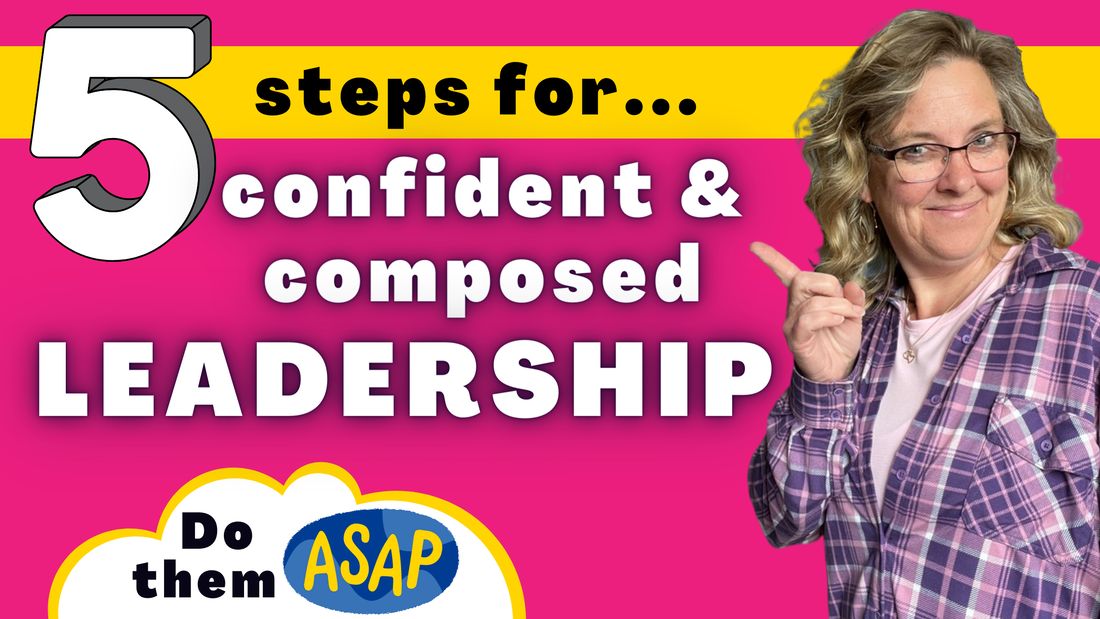
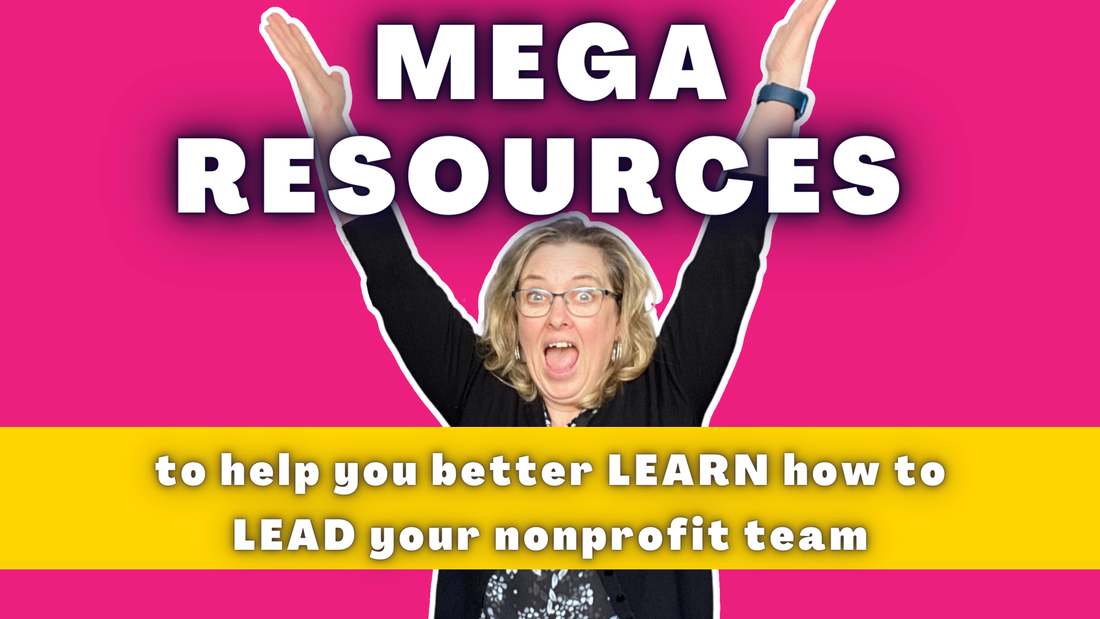
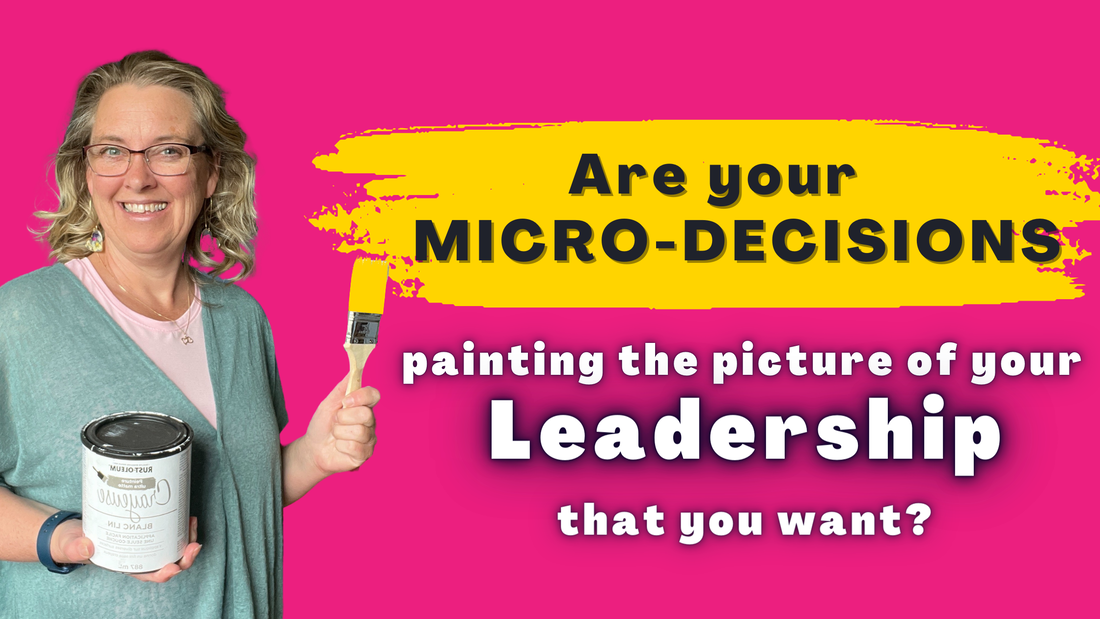
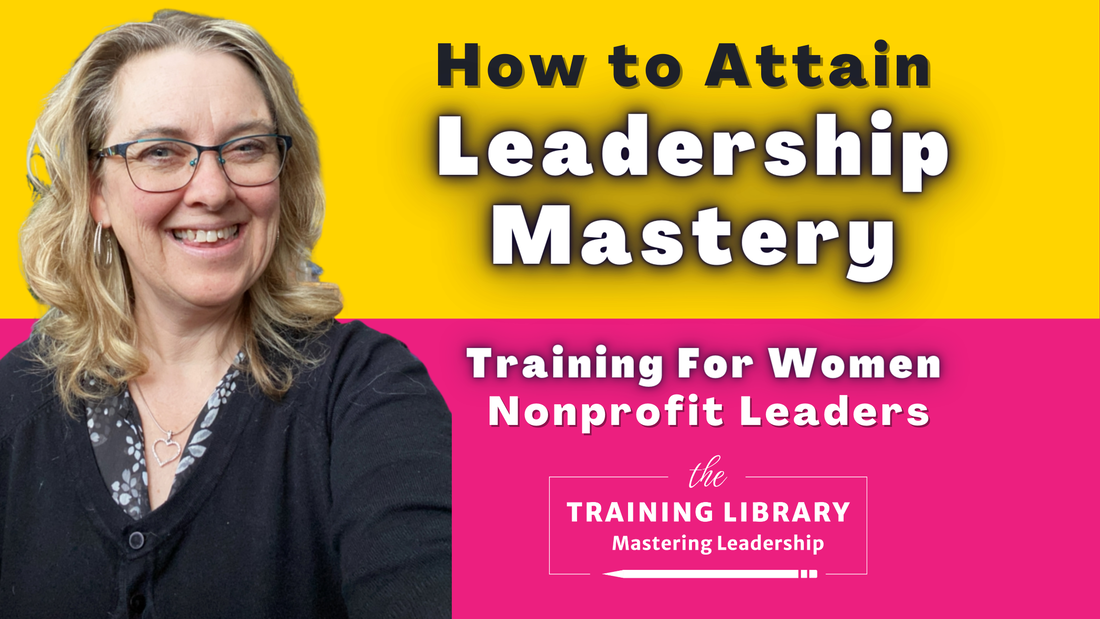

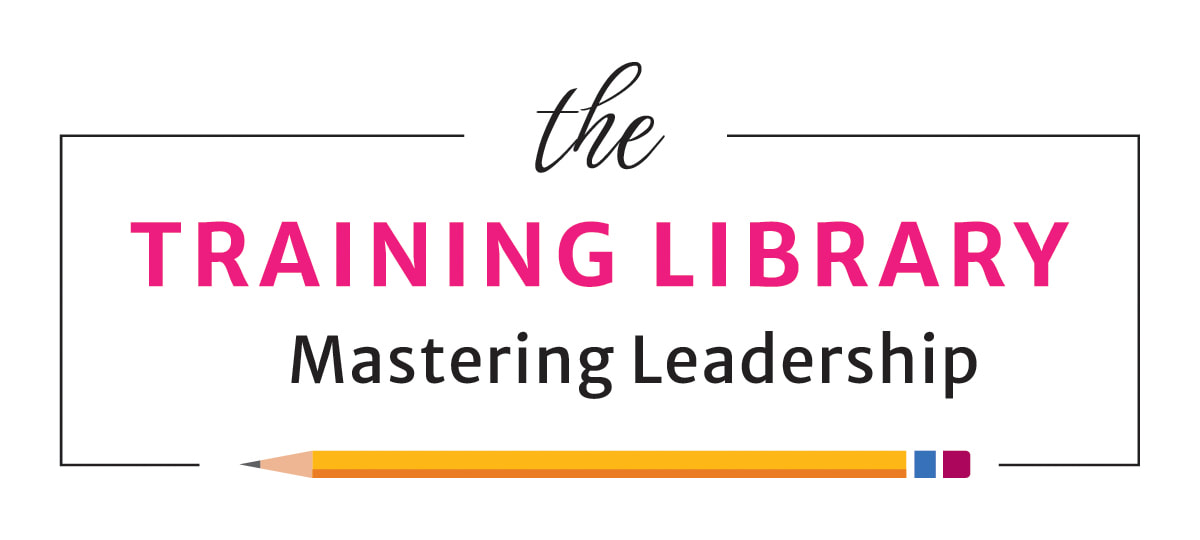

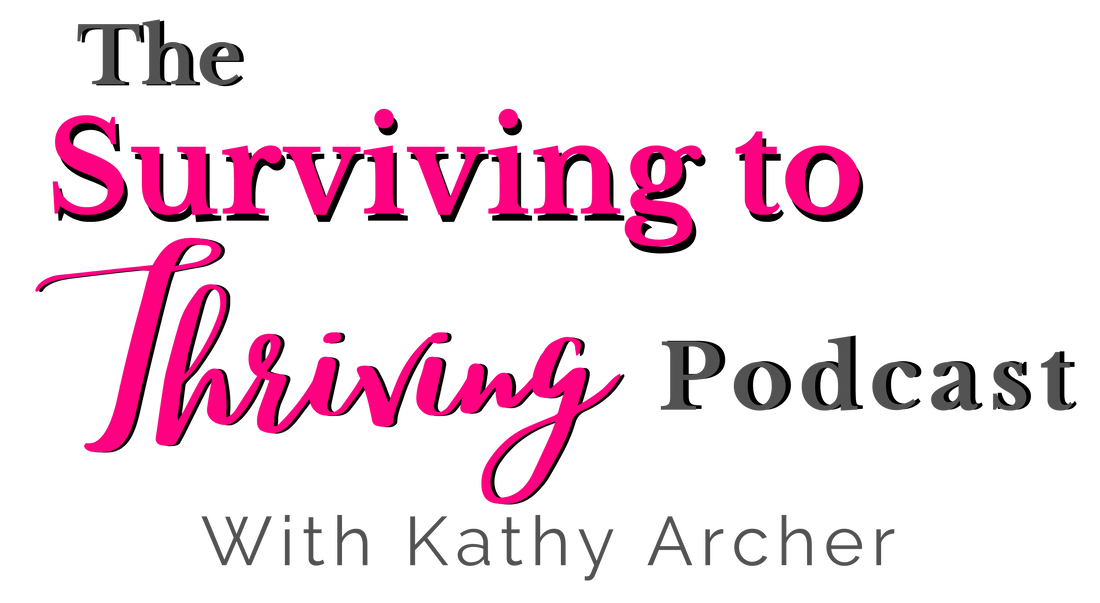
 RSS Feed
RSS Feed
